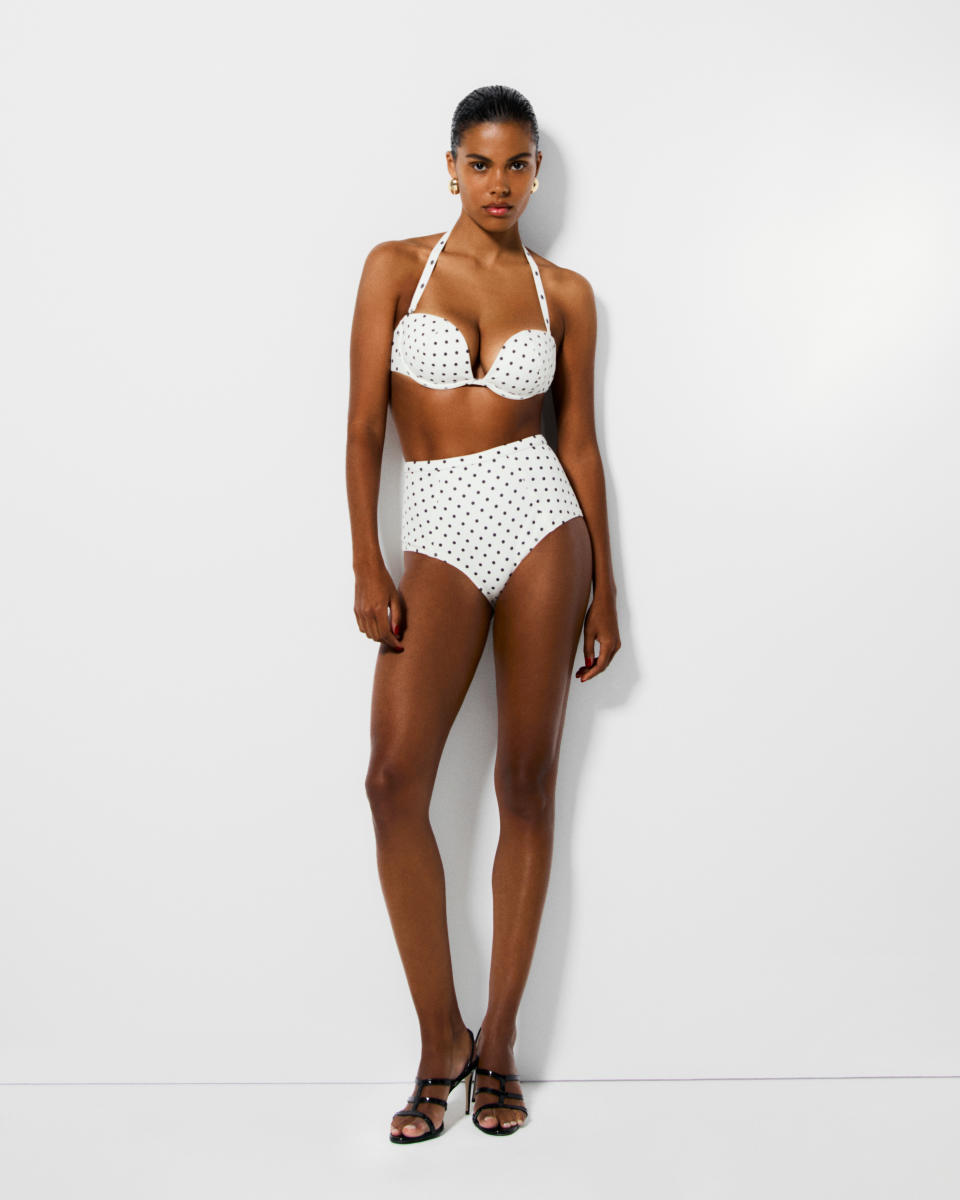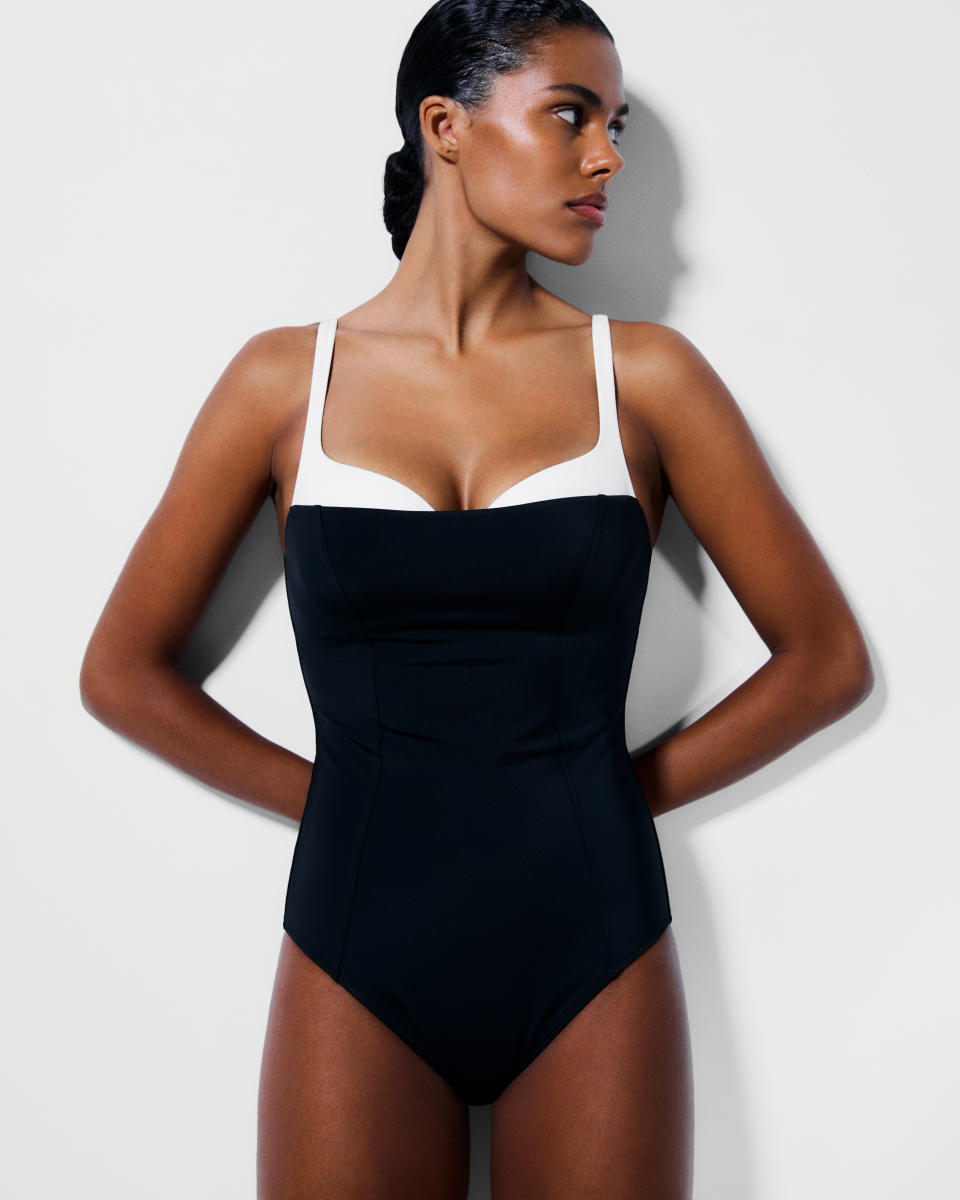EXCLUSIVE: Reformation Dives Into Swim; CEO Hali Borenstein Says No IPO Plans

PARIS — Reformation is diving back into swimwear and relaunching the category with a line made out of the bio-based fabric EVO by Fulgar.
It’s the second time the brand has dipped its toe into the category. It first launched swimwear in 2019 with the regenerative nylon textile Econyl.
More from WWD
France's First Move Against Ultra-fast Fashion; New Stretch Textiles: Sustainability Week
U.S. Consumers Prioritize Sustainability Despite Inflation, Reveals Blue Yonder Survey
How Rosario Dawson and Abrima Erwiah Are Enacting Change Through Fashion
“Our tag line at the time was, ‘This swimsuit is not sustainable enough,’ and we talked a lot about how we’re really committed to making progress,” said Reformation’s chief executive officer Hali Borenstein. Econyl was the best option at the time in the emerging textile innovation space. “It just wasn’t really as sustainable as we wanted it to be,” she said.
“It still didn’t address things like microplastic and microfiber shedding, and it still wasn’t in line with our idea of how do we actually just remove plastics from ready-to-wear categories where we don’t think we need to be wearing plastic,” said chief sustainability officer Kathleen Talbot.
So the brand stepped back from swimwear to see what it could do better.
Fast-forward five years, and Reformation has returned with EVO by Fulgar. It’s a yarn made from castor oil beans — a renewable resource that is also not grown for food — a “drop-in” solution that works on conventional machinery with no plastic coatings.
“It feels like a really good start where we can introduce a plastic-free swim alternative on the market and do it at scale, not just a one-time capsule,” Talbot said. The collection will also have a selection of garments designed to be worn with the swimwear.
It was long journey to build a new supply chain with a fiber that met performance as well as sustainability requirements. Reformation’s goals include being carbon positive by 2025, and being a circular fashion brand by 2030. That will also include eliminating virgin synthetics.
“This actually will support both of [the targets],” said Borenstein, who cited material composition as the biggest driver of the company’s carbon footprint, ahead of transport.

Reformation is investing heavily in research and development for bio-based alternatives to integrate into its collections.
Borenstein said the company is on track to meet its 2025 goal, and that nearly one-third of its products are textile-to-textile recyclable. The company has worked with Renewcell’s Circulose, and following the Swedish company’s bankruptcy, it is looking for alternative textile-to-textile suppliers.
Working with Eastman’s Naia fabric has helped Reformation reduce the silk used in its lines, with a goal of removing it, while another initiative to increase its quotient of recycled cashmere will hit a 95 percent level in its blends by the end of the year.
Reformation’s ad campaign with Monica Lewinsky launched Feb. 26 grabbed headlines and generated more than $2 million in MIV within 48 hours. The positive feedback for that campaign has been “overwhelming,” Borenstein said. The Reformation team had been inspired by her anti-bullying work and the powerful reclamation of her own narrative. Lewinsky ticked the brand boxes of being feminine yet strong.
“The work that she’s done to really get her voice out there and to make a difference, especially with online behavior, is really unique,” Borenstein said. “So it was about time. Monica deserved that moment.”
There’s also been significant buzz around the company’s potential initial public offering, but Borenstein dismissed those rumors.
“Buzz is buzz, but that was never substantiated,” she said. The company passed the $350 million revenue mark in 2023 with “double-digit profits.” Borenstein said 2024 is off to an equally strong start. “Today that we are not on the market for anything, and we are not preparing for an IPO,” she said. “We’re just building a great company.”

It’s no coincidence the swim collection is launching with French model Tina Kunakey.
Outside of category expansion such as swimwear, Reformation is eyeing more of the European pie. With five stores in the U.K., the company has invested in a new distribution center in mainland Europe and will soon launch a local-language site in France with an emphasis on customer service, as well as hosting several activations in the country.
Reformation makes sense for the European marketplace, said Borenstein, in part because of Europe’s coming sustainability and traceability regulations that are in line with the company’s targets, in addition to an engaged customer base. About 20 percent of the company’s sales come from outside the U.S., with the U.K., France and Germany growing markets.
“The mission does just really resonate. Objectively, European customers are louder and more committed to sustainability than Americans from what I have seen,” she said. “Our voice and our product has just really a great fit. So for us, it feels like the natural next step.”
While EVO by Fulgar does not have a recycling solution yet, Reformation is working with SuperCircle to find one to meet its targets. “That [circularity] commitment is really keeping us accountable to considering the end of life and the recyclability of new categories,” Talbot said. Because swimwear lacks things like zippers and is a mono-material, there are fewer hurdles in the recycling race. “Those are some of the things that, for instance, we consider when we’re looking at new categories and new products.”
Closing the first quarter of 2024, the 2025 targets are fast approaching.
“We’re quite literally sprinting to the finish line,” added Talbot. “But that has really been our anchor for impact across the business.”
Best of WWD


